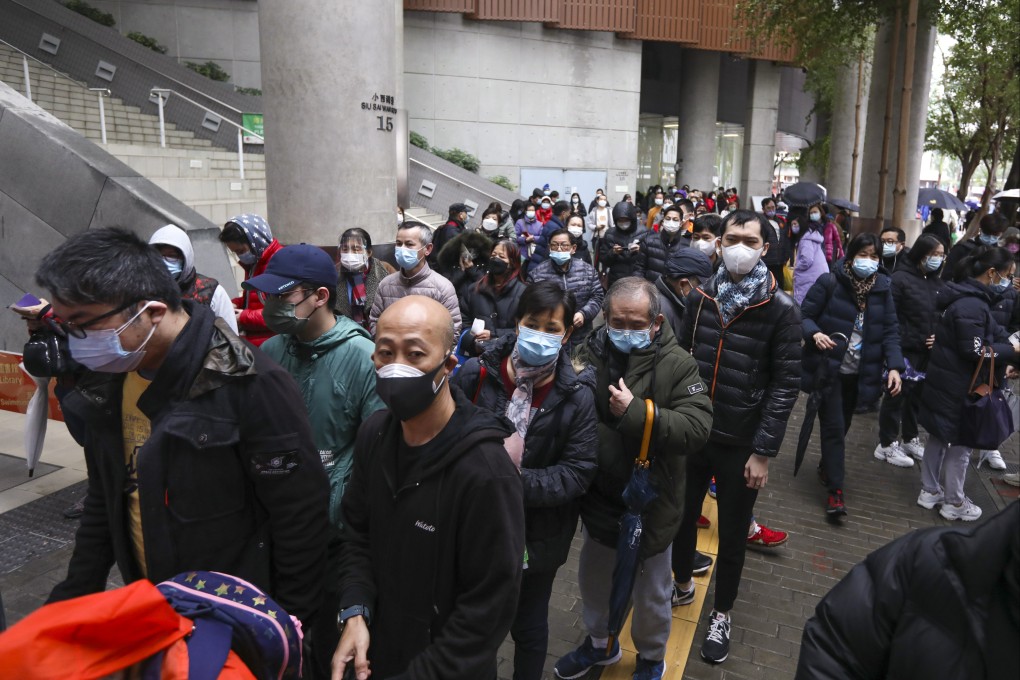Editorial | Large-scale screening to give Hong Kong complete picture of threat
- Finally the government has laid out its strategy with compulsory testing for the coronavirus beginning next month

Testing is an essential part of Hong Kong’s strategy to halt the spread of the novel coronavirus. With thousands of new daily cases and an alarming rise in the number of deaths as a fifth wave of the disease rampages across the city, quickly screening people who may have had contact with those confirmed as being infected is crucial.
That is especially so with the highly transmissible Omicron variant driving the surge, many of those affected not even knowing they are carrying the disease and capable of passing it to others. Stopping the strain in its tracks requires everyone being tested.
Chief Executive Carrie Lam Cheng Yuet-ngor on Tuesday laid out how that is to be achieved, the compulsory process starting next month. With an eye on three rounds of testing for each resident, daily capacity for screening and sample analysis will be boosted to about 1 million a day.
Most social-distancing measures will be extended to the middle or end of April. School holidays scheduled for July and August will be brought forward to March and April, enabling smoother testing for children.
Land is being identified for construction of temporary treatment and isolation facilities and buildings converted to make them suitable for quarantining.

